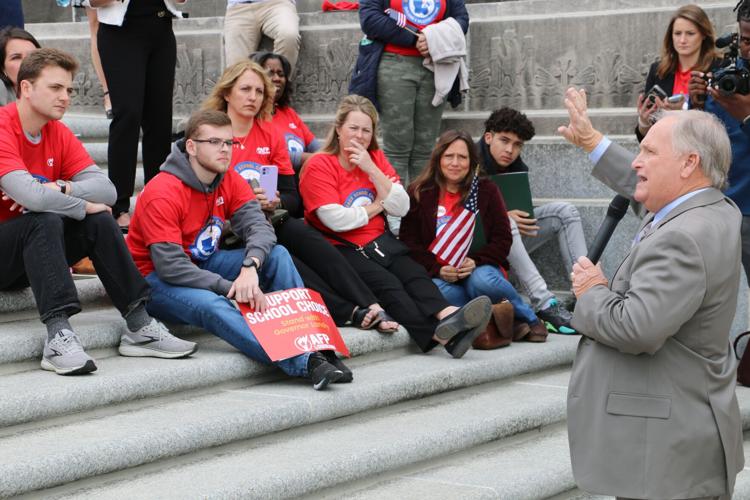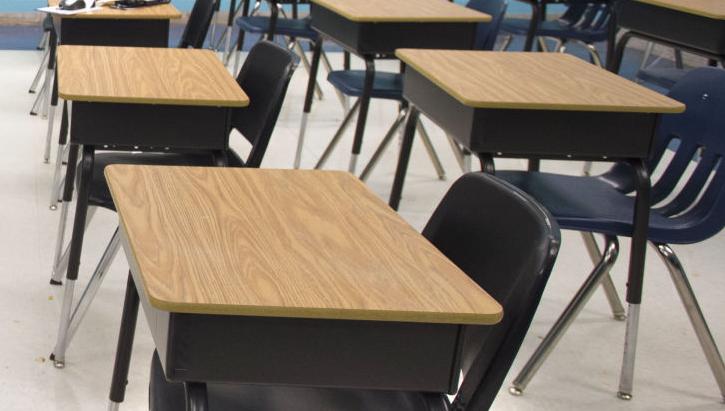Ann Duplessis is a senior vice president at Liberty Bank and a former state senator who authored Louisiana's first private school voucher bill. She is a national board member for the American Federation For Children, which advocates for school choice.
Caroline Roemer is executive director of the Louisiana Association of Public Charter Schools, which supports, promotes, and advocates for the charter school movement. Her comments here do not necessarily reflect the position of the association.
Duplessis and Roemer recently joined columnist Stephanie Grace to discuss school choice legislation being considered by the Louisiana Legislature. The event was hosted by The Neutral Ground, which promotes civil discourse on matters of public interest. The Times-Picayune and WWL-TV are partners with the nonpartisan organization.
The following is an excerpt of their conversation, edited for length and clarity.
Grace: Eight states now offer universal school vouchers, which are often called education savings accounts or education scholarship accounts. These allow families to use government money to pay for private school tuition and other expenses such as tutoring and supplies. Louisiana is poised to join them with what they're calling GATOR scholarships. This would, in effect, expand a voucher program that now covers students from lower-income families coming from low-performing schools, which now serves about 6,000 students. Under the current proposal, ESAs could serve 120,000 students and be available to all by 2027.
So my first question is, what, if anything, do you like about the proposal as it now stands?
Roemer: As charter schools, we deeply believe in empowering parents to make choices. We think that parents know what their children need better than anyone else. And so I think providing even more options is a very good thing for families — especially in a state like Louisiana, that unfortunately has too many schools that are underperforming. And that doesn't have to be a failing school; you could be a child sitting in an “A” school and still not be satisfied.
So I think at the top of my list is that ESAs are just another form of empowering parents to make decisions about their child's education.
I also like that there are tiers of who can qualify. It’s not universal out of the gate; it's more of a slow path to that. I like that it has things around audits on the finances. You can tell that the authors of this bill took their time to learn what isn't working in those other states; I feel like they've tried to be thoughtful.
Duplessis: The thing that sticks out for me is that this bill will truly allow more families to have an opportunity to give their children a better environment. When I did the voucher bill in 2008, it was very limited — and by right; the state had limited resources. We believed at the time that the money should follow the child, but when you have limited resources, it should go to the most needy.
As time has passed, we’ve learned that we were leaving out a lot of other people.
The universal ESA doesn’t have an income cap, although it does have some safeguards regarding the amount of money that will given to the wealthier families. But for me, the most important thing is that now we have moderate to middle-class families who will be able to take those resources and provide better outcomes as well for their children.
Grace: Caroline, you mentioned tiers. What you're talking about is income tiers in the first few years that eventually disappear?
Roemer: Yes income tiers initially, as well as who can initially qualify. In the third year it's full-blown universal, so at least it is staggered. I think that allows us to get our feet under us and understand what's working in the program and what's not.
Duplessis: I think also when it passes, it will put in some really good safeguards with regards to the amount of money that is offered to the various income levels.
Grace: Even once it becomes universal?
Duplessis: Yes.
Grace: So you’ve told us what you like. What, if anything, gives you pause?
Duplessis: The debate on the cost is what gives me some heartache. When we look at the challenges of other states that have instituted an ESA program, the primary issue is that it costs more than what they anticipated because of the number of students who are actually taking advantage. But my hope is that we stay true to funding the lowest income and the most at-risk students first if we see that there are potential cost overages
Grace: A lot of people point to Arizona, What's happening there, it seems, is that many more students are taking advantage than expected, and those students are not coming from public schools; they already went to private schools.
Duplessis: Correct, and that’s the one thing that does give me some pause. And so, just as we create legislation, we should be able to amend legislation, and my hope is that we stay flexible — if we see something that isn't working, that we move quickly to correct it.
Roemer: I agree. Whether you believe in ESAs or not, as a state are we prepared to look at $300 million-plus a year in the short term? That’s a number that has been projected, and PAR is predicting longer term over half a billion dollars. It's a lot of money for a state that right now doesn't have a lot of money to spend. So how do we embrace those costs long-term, and how will that affect, frankly, our public school systems?
From a public school setting, we are squeezed daily around accountability — performance letter grades, certain tasks, curriculum mandates in the classroom. ... So it is very frustrating to sit in a room and hear a conversation where there is no discussion around the usual accountability. As charters, we dream about the autonomy that's been discussed for ESAs.
So I think the goal is not trying to make every school the same, but understanding how we are measuring the effectiveness of these public dollars to get to the outcome we're looking for, which is better academic results. Or some would argue that sometimes it's just a safer school, happier parents.
Maybe that all leads to my final concern (for now), which is this blurring of lines around dollars going to public versus private. I can't say that that issue is limited to education.
To learn more about The Neutral Ground, visit theneutralground.org.






